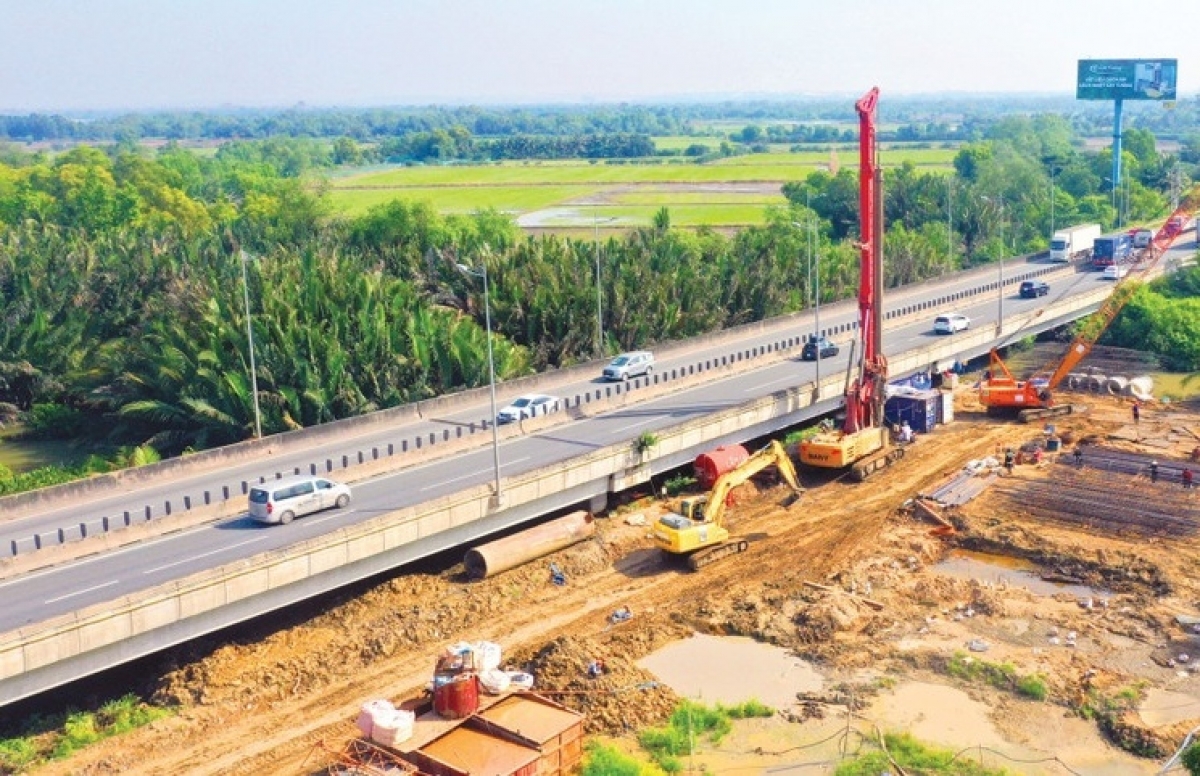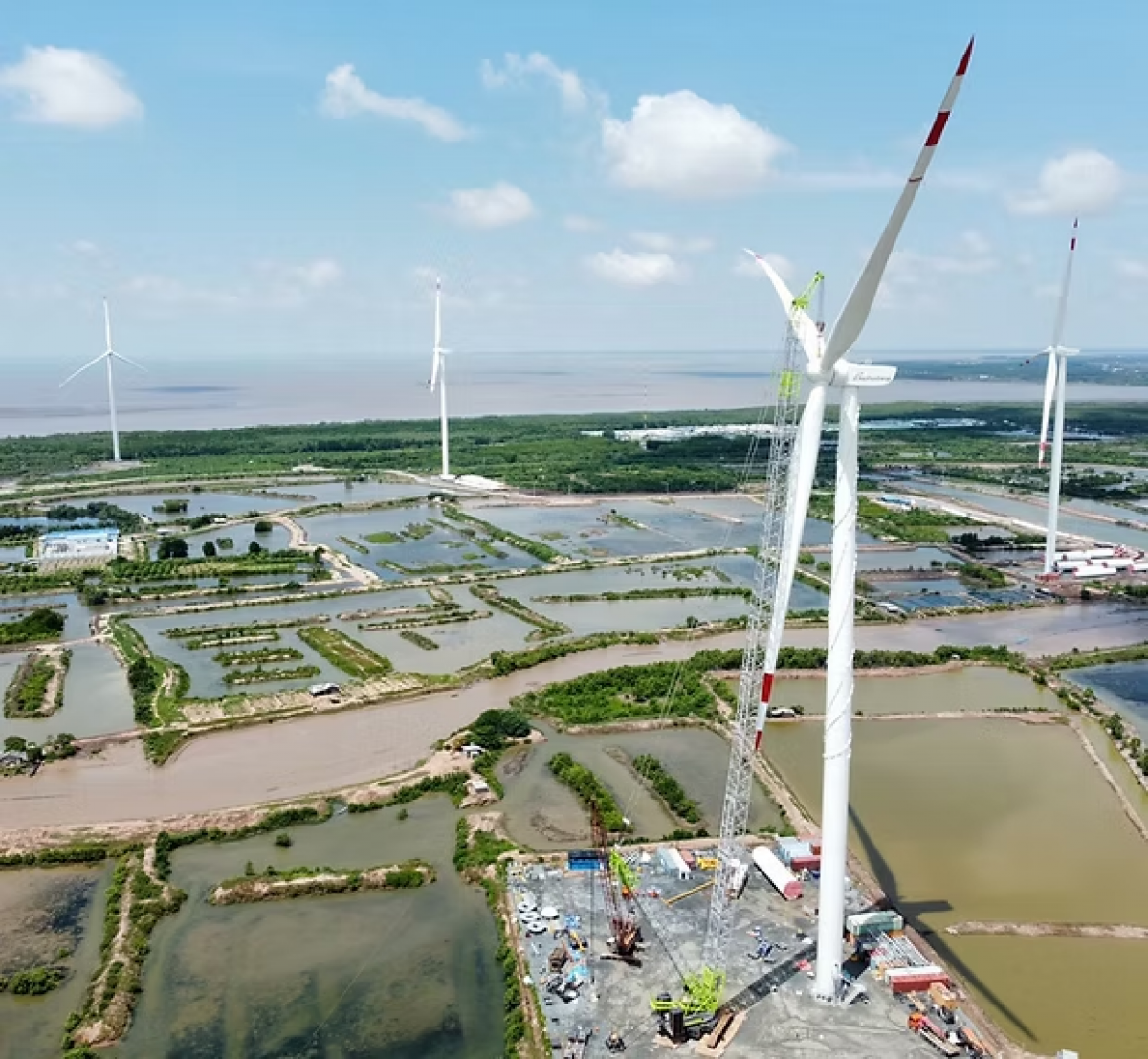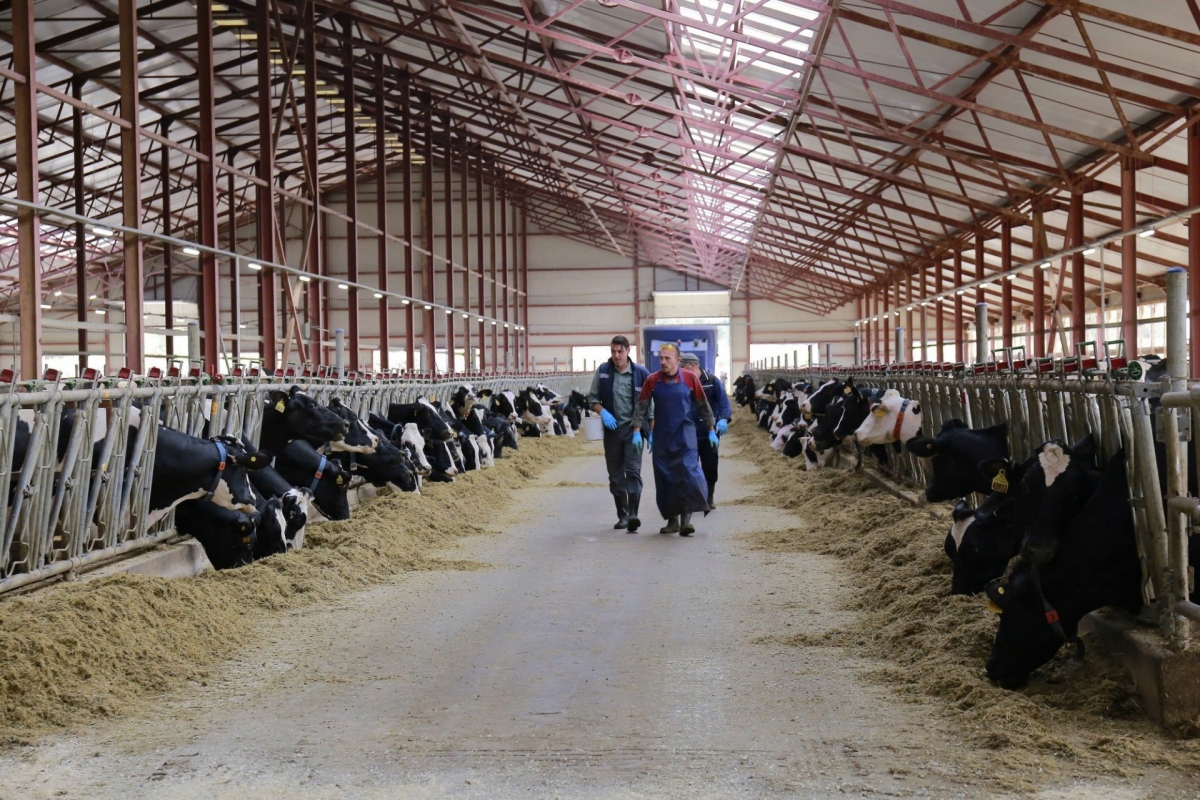INTERNATIONAL INVESTMENT
AND PORTAL
Recognising the trend and the importance of environmental, social, and governance (ESG) practices, the banking sector has positioned itself as a pioneer in greening investment capital and enhancing social responsibility to achieve green growth and sustainable development goals, which include the integration of ESG criteria.
 Ha Thu Giang, director general, Department of Credit for Economic Sectors State Bank of Vietnam
Ha Thu Giang, director general, Department of Credit for Economic Sectors State Bank of Vietnam
As the state agency responsible for monetary policy, banking operations, and foreign exchange management, the State Bank of Vietnam (SBV) has actively implemented a comprehensive range of measures to fulfill the directives of the Party and government on green growth and sustainable development.
The SBV has managed monetary policy tools and measures in a flexible and synchronised manner to control inflation, contribute to macroeconomic stability, and maintain monetary market stability. Moreover, it has proactively researched, developed, and issued various documents to implement environmental and social risk management in credit activities.
In 2015, the SBV issued a directive to guide the entire banking system in promoting green credit growth and managing environmental and social risks in credit activities. The directive set a goal for 2015 onwards, emphasising that credit activities in the banking sector should focus on enhancing resource and energy efficiency, improving environmental quality, protecting public health, and ensuring sustainable development through green credit and risk management.
In collaboration with the International Finance Corporation, the SBV also released a handbook for assessing environmental and social risks in credit activities across 15 high-risk economic sectors. This handbook serves as a valuable resource for credit institutions in evaluating, appraising, and managing these risks effectively.
The SBV then introduced the Green Banking Development Scheme to raise awareness and social responsibility within the banking sector for environmental protection and climate change mitigation. This initiative directs credit towards environmentally friendly projects, strengthens environmental and social risk management in credit activities, and supports green growth and sustainable development.
New rules were also made effective from June 2023 to manage environmental risks in credit activities. They strengthened the sector’s commitment to environmental protection, enhances risk management, and aligns practices with international ESG standards, improving credit quality and banking safety.
The SBV also launched an action plan to support the National Strategy on Green Growth towards 2030 and the outcomes of COP26. It has directed credit institutions to implement various programmes that benefit the environment, such as agricultural development policies, low-emission rice production in the Mekong Delta, and social credit programmes for low-income households, contributing to inclusive green growth goals.
Additionally, the SBV has actively participated in domestic and international seminars and forums related to ESG, green finance, and sustainable banking. This involvement allows it to learn from and share experiences in implementing ESG practices, green credit, and sustainable banking.
Based on the evaluation of the 2014-2020 period and monitoring from 2021 onward, credit institutions have acknowledged the importance of ESG practices in banking operations. They have proactively researched, developed, and enhanced their ESG systems in a comprehensive manner. This includes integrating environmental and social commitments into business strategies, studying international ESG regulations to develop internal guidelines for managing risks, and improving organisational structures by establishing dedicated ESG units.
Additionally, these institutions have engaged in international cooperation, mobilising resources to prioritise funding for green projects and climate initiatives. They have developed green credit programmes and products, ensuring transparency in information disclosure. Digital transformation efforts have been accelerated to improve access to banking services and promote financial inclusion.
Moreover, the institutions have strengthened staff capacity in ESG practices, environmental and social risk management, and the development of sustainable financial products. Internal initiatives promoting sustainable operations, such as reducing plastic use and conserving resources, have been enhanced. Efforts have also been made to educate clients and integrate related strategies into their core business activities.
However, for the banking sector’s mechanisms to be truly effective, besides the sector’s efforts in promoting ESG practices, directing credit capital to environmentally friendly projects, and expanding credit access for green sectors, collaboration among various ministries, agencies, and related entities is crucial.
The SBV has outlined key recommendations to strengthen ESG practices in Vietnam’s banking sector. Developing an updated and easily accessible database on the environmental and social aspects of projects is crucial, as it would provide credit institutions with a reliable source for assessing project impacts. Additionally, support for training and capacity building for enterprises is necessary to help them align with international standards.
The Ministry of Natural Resources and Environment should expedite the proposal to the prime minister on environmental criteria for projects eligible for green credit and bonds, guiding credit institutions in selection and monitoring. A comprehensive roadmap for supportive policies, including tax incentives, funding, and technical assistance, would strengthen ESG practices and optimise green credit resources.n
 Banking sector contributes to ESG, green growth, and sustainable development
Banking sector contributes to ESG, green growth, and sustainable development
The banking sector has positioned itself as a pioneer in greening investment capital and enhancing social responsibility to achieve green growth and sustainable development goals.
 SHB and the ESG journey: creating social value in every step
SHB and the ESG journey: creating social value in every step
SHB (Saigon Hanoi Commercial Bank) has reaffirmed its mission to drive comprehensive national development, minimise environmental impacts, and create sustainable, long-term value for the community. This commitment is not just a slogan but is demonstrated through practical actions.
 Full ESG adoption the priority for Agribank
Full ESG adoption the priority for Agribank
As sustainable development becomes a mandate for the banking industry, Nguyen Thi Thu Ha, deputy head of the Steering Committee for Environmental, Social, and Governance at Agribank, talked with VIR’s Nhue Man on the importance of adopting ESG criteria.
 Standard Chartered committed to Vietnam’s financial success
Standard Chartered committed to Vietnam’s financial success
According to the International Monetary Fund’s World Economic Outlook Report in April this year, Vietnam is the only Southeast Asian representative in the top 10 countries with a forecast of 6.4 per cent growth from 2024 to 2029.


















